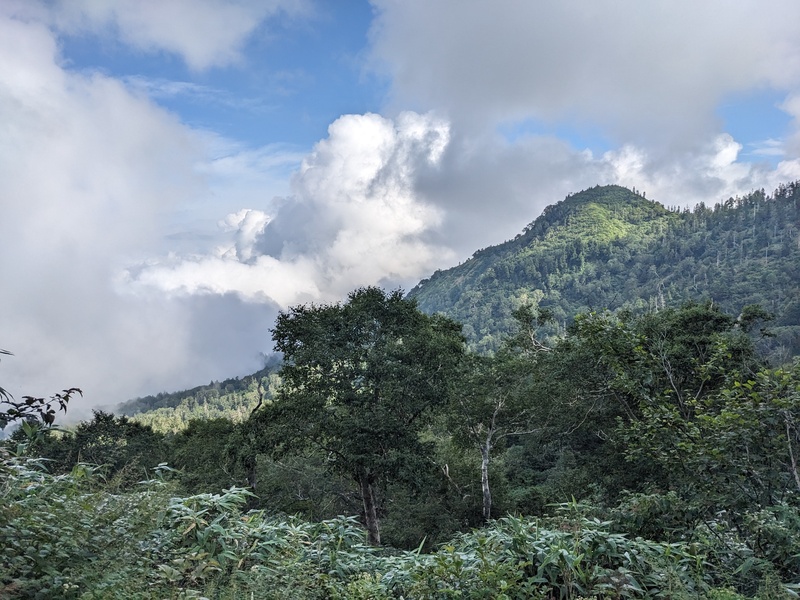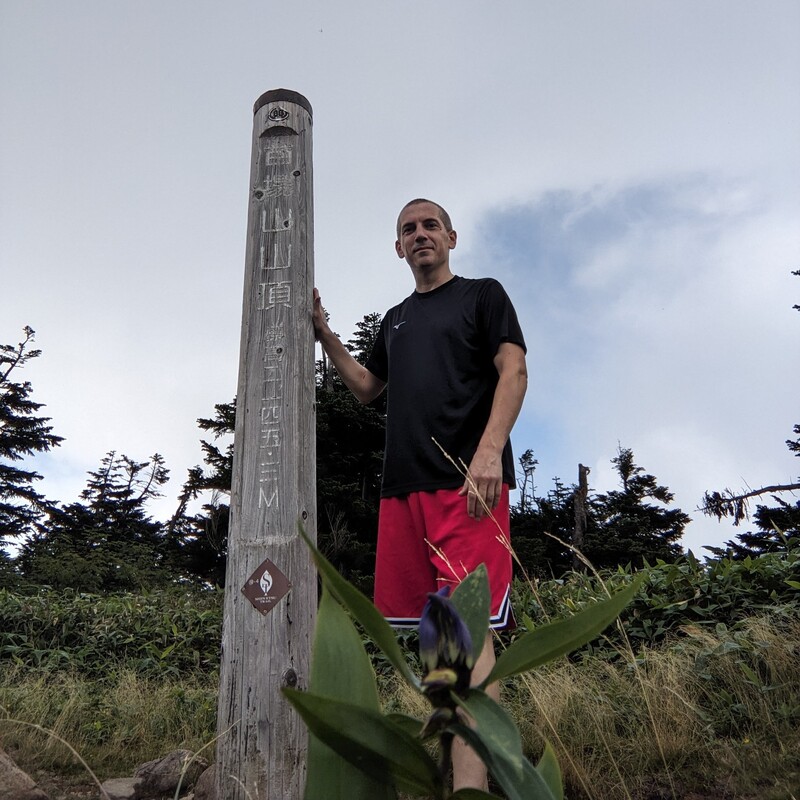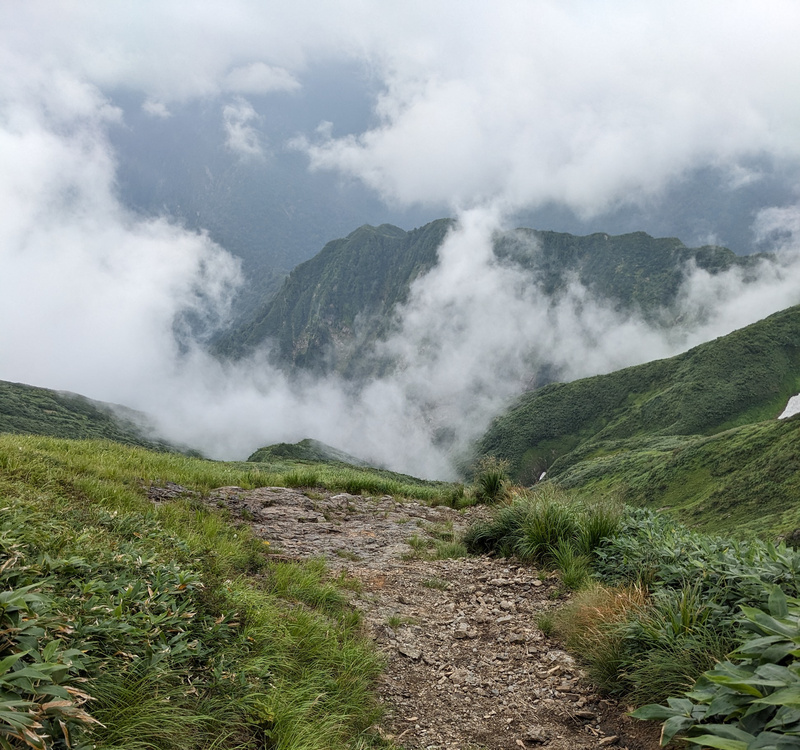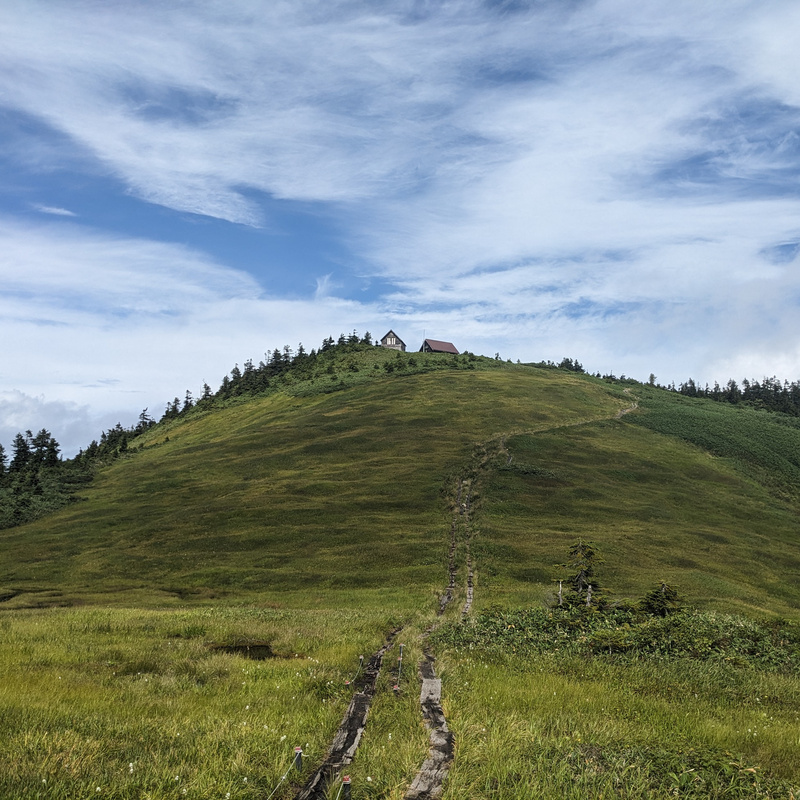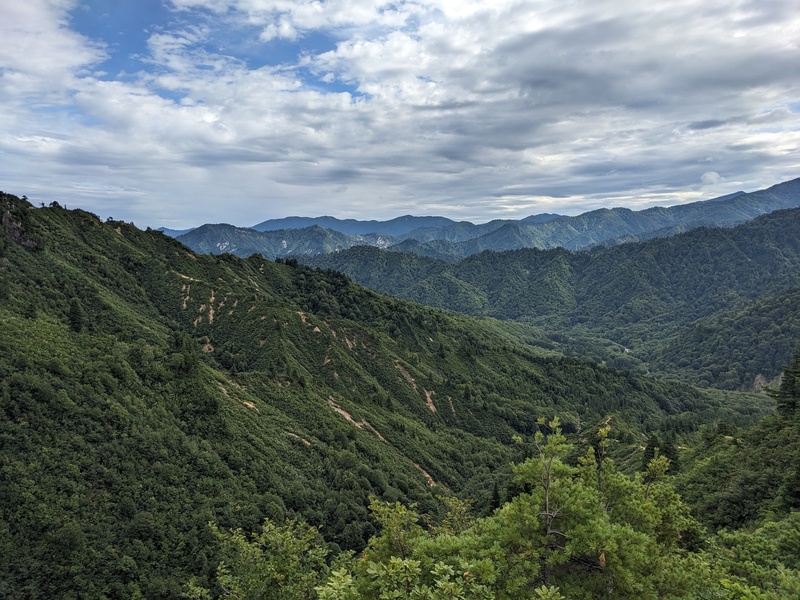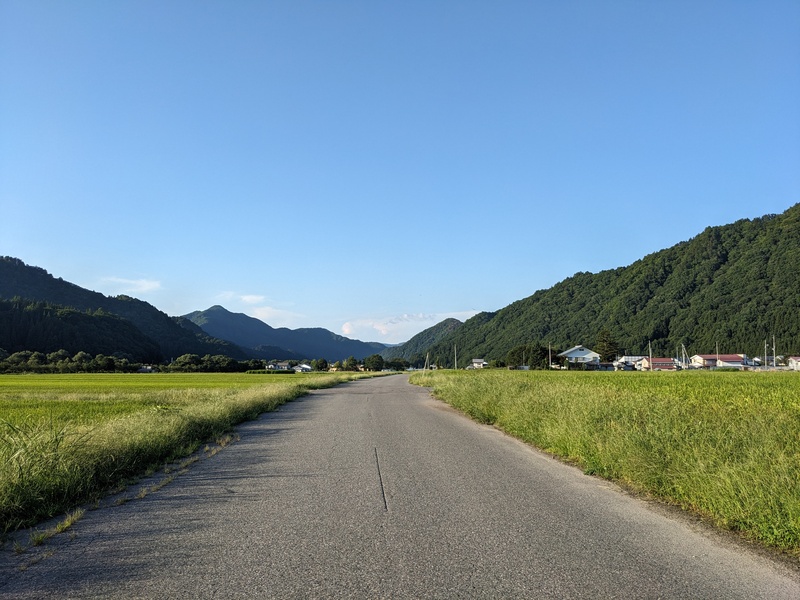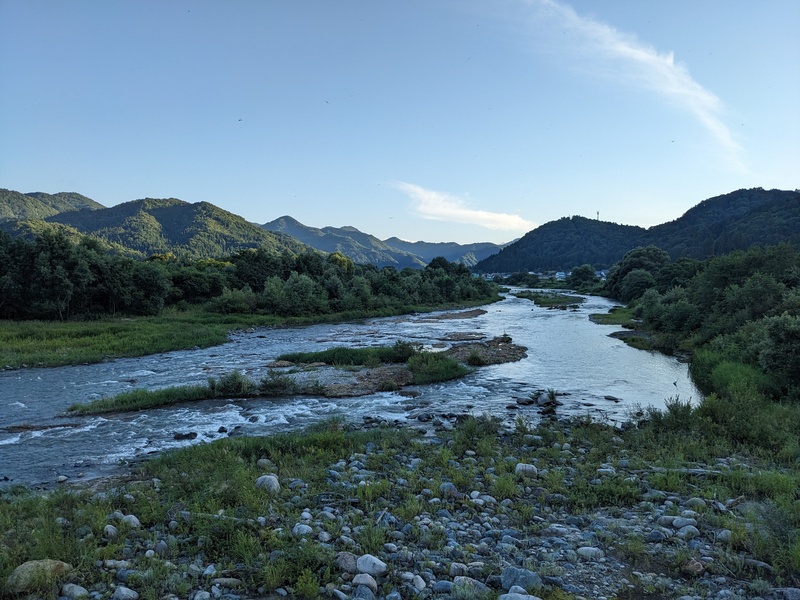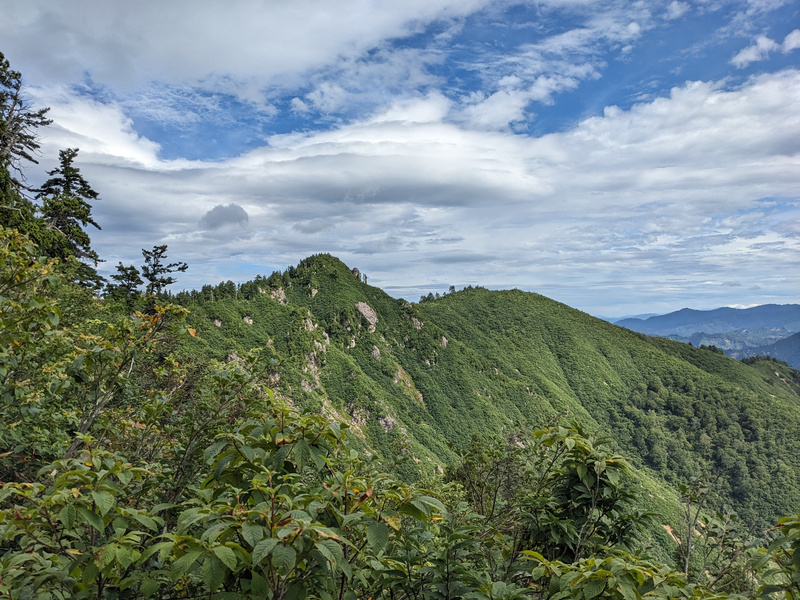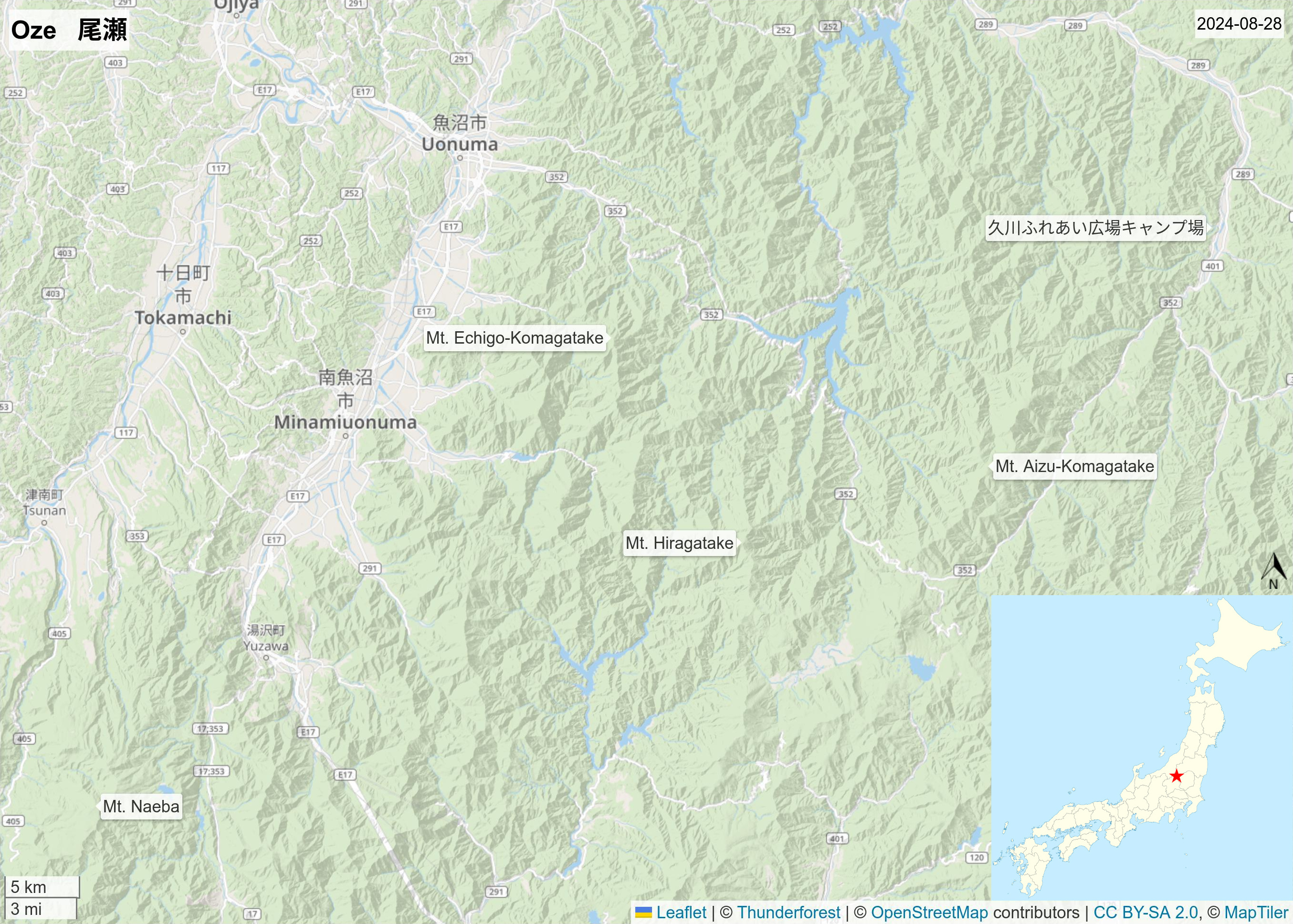Hiking Oze
2024-08-28
I started climbing the peaks of Oze last summer and returned this summer for more adventure. Oze is a 4-hour drive from my house, and it's remarkably remote. The last real town is Uonuma, and heading east from Uonuma on Highway 352 brings two hours of hairpin turns and curves that look like malaria germs, naturally with no cell signal. What few people can be found are there for fishing, hiking, and hot springs. Some of the roads and villages are summer-only, and you get the feeling that it's just you up here. I climbed Mt. Naeba (Niigata), Mt. Echigo-Komagatake (Niigata), Mt. Aizu-Komagatake (Fukushima), and Mt. Hiragatake (Niigata), all on Japan's Top 100 Mountains list.
Some years ago, there were a great many free campgrounds in the country. These days you can find a few here and there, but what's more common are places that charge 500-1,000 yen for a night. Search online for 無料キャンプ場 and see what comes up. I prefer to use these basic campgrounds when hiking because your average campground is more likely to be designed for glamping and barbecuing. There's nothing wrong with those activities, but they tend to bring a noisier crowd and higher prices. Also, for some reason they tend to have "check-in by five" policies, which doesn't work well if you arrive after a long hike or drive. On the other hand, some commercial campgrounds have great views and facilities, and the crowds are a non-factor in the off-season. Either way, there's some beautiful nature to be found.

